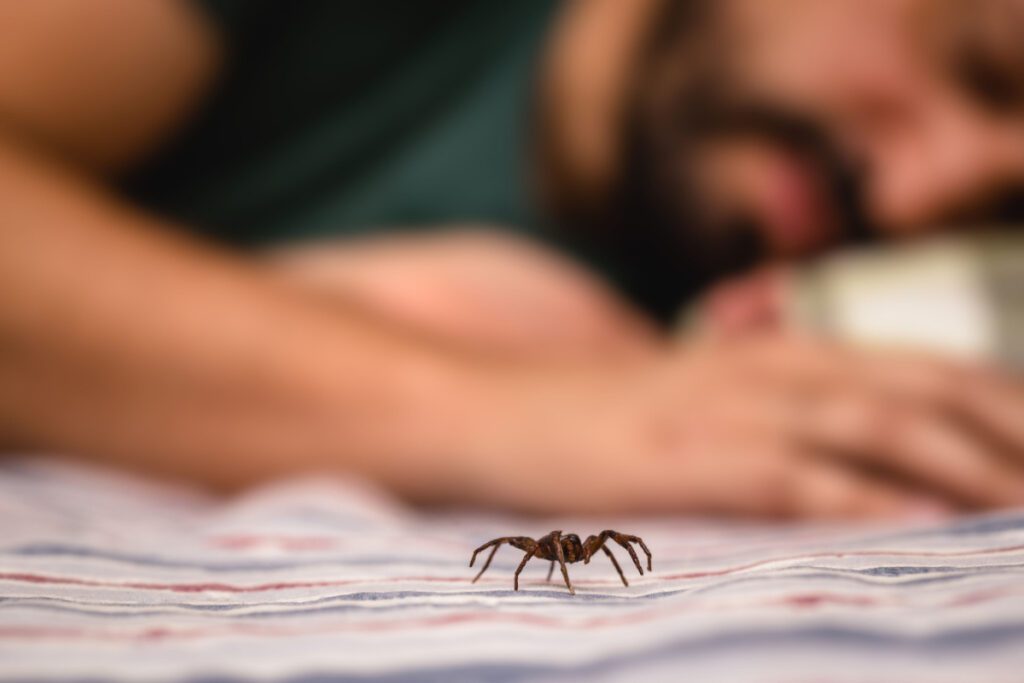

Picture this: It’s late at night, you’re home alone, and suddenly – out of the corner of your eye – you spot a spider skittering across your living room floor. If this scenario sends shivers down your spine, you’re not alone. Spiders might be tiny, but they can significantly impact our comfort and peace of mind, especially when they decide to make our homes their own. But why do these eight-legged creatures find their way into our abodes? We’re here to unveil the top five things that attract spiders into your house. This better understanding is the first step toward proper spider control and reclaiming your space from those miniature intruders.
Understanding the Unwanted Guests
Despite their often fearsome reputation, spiders are primarily driven by simple survival instincts. They seek out environments where they can find food, shelter, and a chance to reproduce. Unbeknownst to you, your home might be offering all these things in abundance. Spiders are expert hunters, feeding on other pests like flies, mosquitoes, and moths. If your house has a healthy population of these insects, it’s like an open buffet invitation for spiders.
Additionally, they prefer quiet, undisturbed areas to spin their webs or burrow, which is why you typically find them in attics, basements, and rarely-used corners. And during certain times of the year, particularly during mating season or harsh weather, spiders are more likely to venture indoors.
Attractant #1: Abundance of Prey
Spiders, the ultimate predators of the bug world, are lured into homes by the promise of a plentiful food supply. Like the larger predators in the wild, spiders thrive where food is plentiful and readily available. Your home can inadvertently become a haven for spiders if it hosts a multitude of insects. Spiders are opportunistic hunters, setting up their intricate webs to capture these unwary bugs. The presence of spiderwebs in your home often signifies an existing and thriving population of other pests.
Attractant #2: Ideal Living Conditions
Spiders, like all creatures, are drawn to environments that provide their basic needs: food and shelter. While the exact ideal living conditions may vary from species to species, your home can inadvertently become a sanctuary for these eight-legged hunters. Spiders are known to favor secluded, quiet spots to spin their webs and hunt for prey, so areas in your home like basements, attics, or undisturbed corners can be particularly appealing. Your home’s climate-controlled environment may offer a refuge from the harsh outdoor elements, attracting spiders seeking cover from the rain and heat. The presence of an abundance of insects, which are spider food, can also make your home an attractive hunting ground, especially in damp environments.
Attractant #3: Availability of Hiding Places
Spiders, being the elusive creatures they are, seek out hidden spaces within your home as their preferred habitats. They thrive in quiet, secluded spots that offer both shelter and a strategic vantage point for hunting prey. Familiar hiding places include under furniture, in stairwells, garages, closets, and even crawl spaces. Spiders can also find refuge in cluttered areas, such as beneath sinks or inside cupboards and cabinets. Even second-hand items brought into your home can unintentionally provide shelter for spider eggs.
Attractant #4: Mating Opportunities
Spiders, like all creatures, are driven by the need to reproduce, and this instinct can lead them into our homes. During mating season, spiders may venture indoors in search of a mate. Interestingly, spiders employ a range of strategies to attract a partner. Some use pheromones, chemical signals that can guide a prospective mate to their location. Others use what is known as ‘mating drums,’ a unique form of communication where the spider produces vibrations to signal its presence to potential mates. Old furniture or second-hand items can also harbor spider egg sacs, potentially introducing new spiders into your home.
Attractant #5: Weather Conditions
Weather conditions, particularly extreme ones, can significantly influence the presence of spiders in your home. As these creatures are small and delicate, even slight changes in weather can impact them, prompting them to seek more favorable environments. During periods of intense heat or cold, your climate-controlled home becomes an appealing refuge for spiders. Additionally, certain species, like the cellar spider, are drawn to areas of high humidity, making damp areas in your home, like basements or attics, especially attractive. Spiders may also come indoors during wet, colder weather when the outside population of insects, their primary food source, dwindles.
Maintain a Spider-Free Home
Knowing these five things that attract spiders to your home is the first step towards effective spider control. It’s crucial to maintain cleanliness, repair cracks and gaps around your home, manage humidity, and keep your space insect-free to minimize spider infestations. However, if you’re already facing a spider problem, don’t stress. At Bust-A-Bug Pest Management, we have the expertise and tools to help you reclaim your home from these eight-legged invaders. Get quality spider control solutions from our team today, or let our residential pest control experts take your home back from any other set of intruders!
